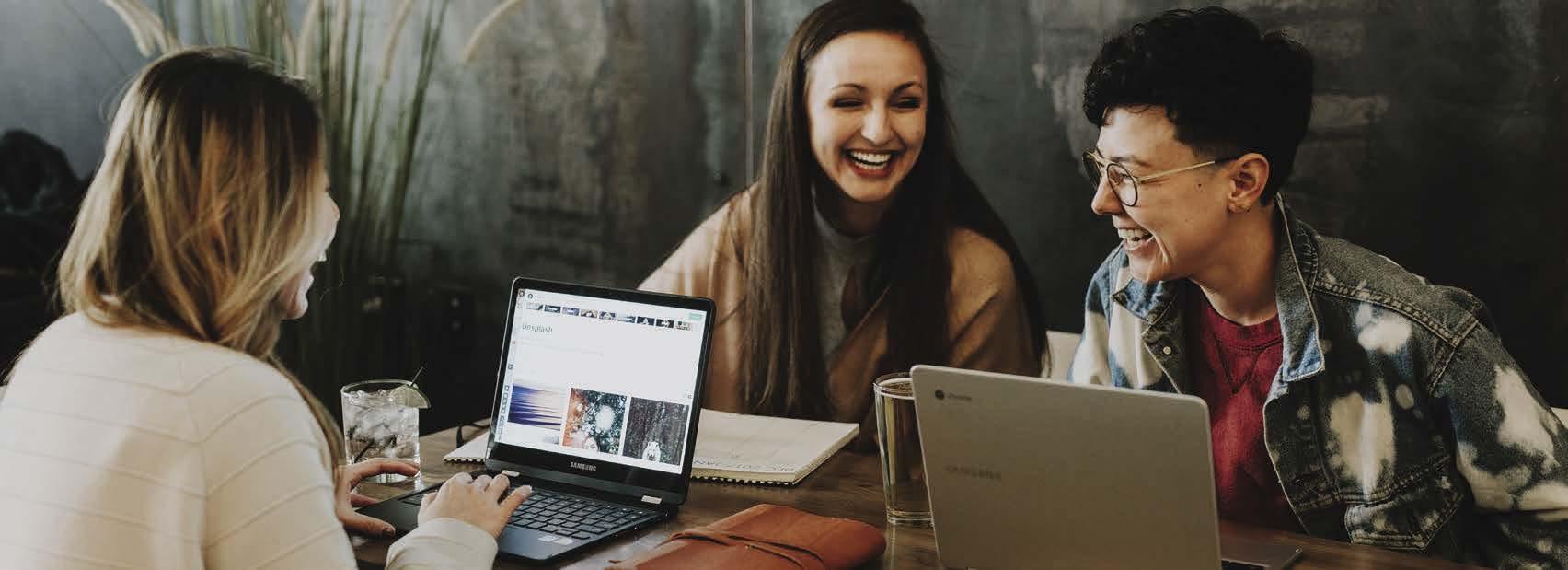
9 minute read
PONSONBY PARK
PONSONBY PARK+ NOVEMBER UPDATE
The Community-Led Design (CLD) group would like to congratulate all members of the newly elected Waitematā Local Board, both returning and new.
We look forward to resuming our productive and collaborative relationship with the board as Stage One of Ponsonby Park, the new civic space at 254 Ponsonby Road, continues to progress towards its on-the-ground start date of July 2023.
We also extend our congratulations to Mike Lee, the new Waitematā Ward Councillor. Thank you for all of your work and support for Ponsonby Park in earlier years when you previously held this position. We look forward to reestablishing our close relationship with you.
And finally to outgoing Waitematā Ward Councillor Pippa Coom, our thanks for all of your support and involvement with Ponsonby Park over the past several years. It was your vision, as part of the Waitematā Local Board in 2015, to undertake a community-led design approach to find a way through the competing ideas for the development of the site. The decision to trial a CLD process has proven itself to have been a wise choice with the CLD process fulfilling its brief and finding a middle-ground, win-win solution; one that nearly everyone (other than the most entrenched diehards) will be satisfied and pleased with. Pippa, we couldn’t have done it without you. In the years and decades to come, the community will be forever grateful to you for your contribution that enabled the creation of the new civic space. Arohanui.
Ponsonby Park has received significant engagement and participation from the community demonstrating ongoing and sustained support for the project, over the years. · 1243 people signed the initial petition to retain the entire site for the Ponsonby Park development
· 698 people responded to the WLB initial 254 Ponsonby
Road consultation
· 190 people responded to the 1st CLD consultation
· 115 people responded to the 2nd CLD consultation
· 208 people responded to the 3rd CLD consultation where the LandLAB Park+ concept design was chosen for the Ponsonby Park development
Now, 22 long years since the need for the civic space was first identified in 2000, and 16 years since the site at 254 Ponsonby Road (currently LiquorLand) was purchased in 2006 to remedy this shortfall, the CLD group and the entire community is delighted that Stage One of the Ponsonby Park development is underway.
By mid-2023 we will have shovels in the ground as the physical on-site work swings into action for Ponsonby Park, the new civic space.
Brilliant! (JENNIFER WARD) PN
www.254ponsonbyrd.org.nz


KEN RING: WEATHER BY THE MOON - AUCKLAND WEATHER DIARY, NOVEMBER 2022
November may be drier than average but with average sunshine.
The first week may be wettest, the second week is the cloudiest with the coolest minima, the third week is the sunniest and driest with highest pressures, the fourth week brings lowest pressures and the last five days see a return of wet conditions. The best weekend for outdoor activities may be 19th/20th. The barometric average may be around 1021mbs.
For fishers, highest tides are around 25th. Best fishing bitetimes in the east are around dusk on 7th-10th and 23rd25th. Bite-chances are also good for noon of 1st-2nd, 16th18th and 30th.
For gardeners, planting is best (waxing moon ascending) on 24th and 25th and pruning is best 8th-11th (waning moon descending). For preserving and longer shelf-life, pick crops or flowers around neap tides of 2nd and 17th. Allow 24-hour error for all forecasting. (KEN RING) PN
For future weather for any date, and the 2023 NZ Weather Almanac, see www.predictweather.com.

Opinions expressed in Ponsonby News are not always the opinion of Alchemy Media Limited & Ponsonby News.

HOMESICK FOR PONSONBY?
If you, your friends or family are missing Ponsonby, why not subscribe to New Zealand’s BEST read community magazine?
An annual subscription is only $49 and can be posted anywhere in New Zealand.
News + Local Politics + Fashion + Style + Celebrity + Eat, Drink + Be Merry + Travel + Living, Thinking + Being + Pets + Future Generation + Sports + Home + Real Estate + Arts + Culture

PONSONBY U3A: NOVEMBER 2022
Troubled hearts.
There’s nothing better than, when out of the gloom shines a bright light of discovery and hope. At the October meeting of Ponsonby U3A, Professor Julian Paton shone one such light on a captivated audience.
Professor Julian Paton is a biological medical research scientist whose international qualifications, fellowships and awards for his projects are too many and varied to list. With clarity and a great sense of humour and fun, he presented members with the exciting and novel ideas he and his team are working on to combat the biggest killer in Aotearoa New Zealand, cardiovascular disease. This disease kills someone every 90 minutes, is responsible for one in three deaths and shortens the life span of Māori and Pacific people who have double the mortality rate.
At the University of Auckland, in partnership with Māori, Julian is the director of a new research centre, Manaaki Manawa (preserving the life force of the heart), working with a multidisciplinary research team. Their mission is to reduce not only the inequity but the incidence of this disease.
One in three of us suffers from high blood pressure, which can lead to strokes, heart attacks renal failure and worsening diabetes, compounded of course by family history, excess alcohol, salt intake, smoking, being overweight and a sedentary lifestyle. Blood pressure is hard to measure and mitigate and 50 percent of patients on medication remain hypertensive.
The carotid body is key to managing drug resistant patients and the team has developed a still under- patent drug to treat the carotid without removal, which is a world first. Also, they are trialling using a catheter into the renal artery to control nerves and lower blood pressure with minimal side effects.
In addition, they have invented a natural device instead of pacing the heart metronomically to advance to a clinical trial next year and which could become a world first. Finally, in response to New Zealand’s abhorrent rate of rheumatic heart disease, which affects 800 people per year, the team aspires to use a 3D printer to grow human cells and body parts including heart valves. Such ground-breaking research takes money, and Professor Paton was accompanied by the team’s development manager, Catherine Davies who explained the abysmal 1.8 percent of GDP position of New Zealand. Rating 45th in the world, we fall behind Pakistan and Romania, and as a result lose scientific talent offshore.
For anyone interested in contributing or being part of a trial, contact Catherine. M: 022 396 4661; E: catherine.davies@auckland.ac.nz
Monika de Man was the ten-minute speaker giving members an inspiring account of her adventures walking one of the longest pilgrim routes in France. Walking alone, Monika covered over 500 kilometres, avoiding major cities and towns. She traversed beautiful European forests and picturesque villages with collapsing stone walls and stone underfoot, many of which have been occupied for centuries. Ponsonby U3A meets at the Herne Bay Petanque Club on the second Friday of the month. A guest speaker drawn from a diverse range of all spheres of endeavour, features each month. As well, members take turns to give a ten-minute talk about their lives or interests. At the heart of the club are the nearly thirty special interest groups that meet once a month. They include gardening, public art walks, gallery visits, dining out, armchair travel, writing, drawing, current affairs, antiques and collectibles, history, architecture to name a few. It is in these small groups that real friendships are forged.
Ponsonby U3A welcomes newcomers. If you are interested in attending, first as a visitor, please call President Ian Smith on M: 021 130 2330. (CHRISTINE HART) PN
NEXT MEETING: Friday, 11 November at 9.30am
GUEST SPEAKER: James Duncan on Auckland’s trams
VENUE: Herne Bay Petanque Club, 19 Salisbury Street, Herne Bay
ENQUIRIES: Ian Smith, President, Ponsonby U3A M: 021 130 2330, www.u3a.nz
THE POST-PANDEMIC RETURN TO WORK - HOW DO WE PRIORITISE OUR MENTAL HEALTH?
With almost all Covid-19 rules and restrictions now lifted here in New Zealand, there is an atmosphere of getting back to normal and getting back to life as it used to be.
But should we? Life pre-Covid was busy and stressful for many of us. Lockdown was the great re-set that we needed to re-evaluate our priorities and find a healthier level of worklife balance.
The virus made us think more carefully about our physical health and safety. But even more so, we’re paying attention to our mental health now more than ever.
We’re getting back to work in different ways Returning to the workplace after lockdown looks different for all organisations. But there’s no denying that boundaries and expectations around when and where we work have shifted. Employees have taken the opportunity to ask for flexibility in their work location and hours, while employers now have evidence of the many benefits of allowing staff to work remotely.
What’s great to see is that as we’re navigating these new ways of working, there has been increased focus on mental health.
So how does coworking help with mental health? There are a few key things that affect our mental health, and studies that have come out of the pandemic reinforce these. Fortunately, coworking contributes positively to all of these.
1. Connection Research shows that people who experience regular human interaction live longer and healthier lives. We all treasure a bit of solitude from time to time, but for long-term wellness, one of the key factors in mental health is connection with others. For freelancers, self-employed people and small enterprise owners, coworking spaces provide a space to connect, collaborate, brainstorm and just have someone to talk to. You don’t even need to actually talk. Simply being in the same room as other people invokes a feeling of belonging and community.
2. Autonomy We feel better when we feel in control. You can use words like freedom, independence, flexibility or empowerment. Whatever you choose to call it, having the flexibility and authority to decide when and where you work does wonders for your mental health. In turn, being trusted to manage your own time improves morale and productivity.
3. Leisure During the pandemic and lockdown, many of us were able to escape the nine-to-five grind and find time for neglected leisure activities. Instead of sitting in traffic at either end of the day, we used those hours for physical exercise, hobbies, family time, cooking proper meals, catching up on sleep, etc. While coworking spaces aren’t the panacea, in many ways they help keep those healthy habits incorporated in your day. Flexible work arrangements, a location that is inviting and easy to get to, a workspace free of office politics, and a group of supportive and diverse office mates – together, these factors create a work environment that helps eliminate, rather than add to, your stress levels.
If you’d like to give coworking a try, get in touch with us on hello@theworkshopauckland.co.nz, and come look around our two great Auckland coworking locations.

Author: Tristan Marris is the owner of Auckland coworking spaces The Workshop – Ponsonby and Colony – Avondale. www.theworkshopauckland.co.nz
Leave the house, not the neighbourhood.

Coworking, hot desks, meeting room & office hire. Join us. We’re in your hood.










